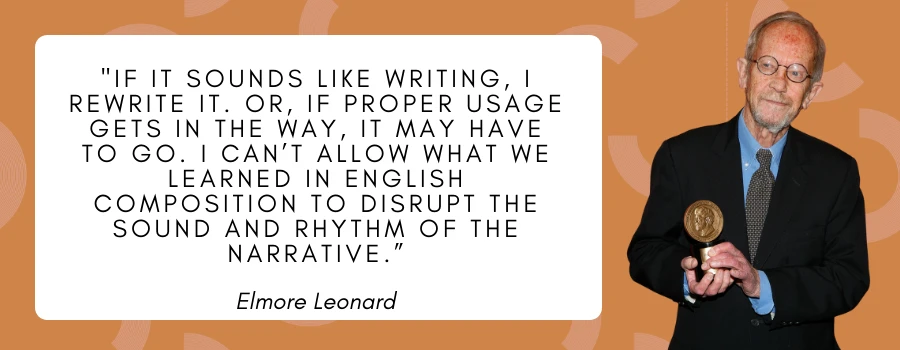Table of Contents
When you see all the great books for sale, it can be easy to assume that the author was born with the talent to write. While talent does play a part, that talent is only ten percent of the process.
Ninety percent of being able to write fiction comes from learning the skill, and anyone at any age can learn how to write fiction and then sell it for a handsome profit online.
Research
Sometimes writers assume that because they’re writing fiction, they can just make stuff up. This will only go so far because readers will suspend believability only to a certain point.
After that, they won’t. If your research isn’t correct, you’ll have readers rolling their eyes and putting the book down. But worse than that, they’ll tell others how off the research was, and you’ll see that reflected in bad reviews and low sales.
Even if you’re writing a paranormal book, the world that the story is set in must be believable and all the elements of this world must be believable. If you stray from that, then you’ll need a plausible reason.
One of the biggest mistakes that new and seasoned writers alike make when doing the research for fiction is getting caught in the research time trap. This is what happens when the writer spends hour upon hour researching information.
They spend so much time researching that it eats into the writing time. While research is necessary, it’s not writing – and you want to do your best to write every day.
The reason for that is because writing on your story every day keeps it fresh in your mind and helps keep you motivated. So don’t let research take up too much of that time.
What you need to do is not research everything at once. Many writers think they must know everything about everything in the fictional world. But you only need the part that you’re working on at the time.
For example, if your book is set in the 1800s, and you need to know about the clothing the men wore, then you could stop and just research that part, and then move on.
But since research can be a time drain, what many well-known writers do is when they come to a part in a story that requires research, they’ll make a note of it right on the manuscript, such as NTS: need to know what type of pants men wore.
The NTS stands for note to self. Usually, writers will bold or underline that part or put it in another font color to make sure that it stands out for their attention. You’ll want to research online, at your local library, with books from the bookstore and by checking with experts if needed.
If your story features a detective solving homicides, and you have him in an autopsy room asking questions, you’ll need to find an expert to weigh in on that scene.
You can find books written by former homicide detectives that detail everything from a day in the life of their career to why the detective would be in the autopsy room and what he’d do and see there.
One word of caution here is that television takes a lot of leeway with the truth in certain types of writing. If you write suspense, don’t take your clues about how cases are solved based on television shows.
Real life cases aren’t solved that way, and readers will be able to tell the difference between someone who did their homework and someone who just picked up their research from a television show.
The types of things you should research include your characters’ jobs if you don’t know the ins and outs of their profession and the town, city and state they live in. Some of this might seem a little much, but readers in Ohio will know when it snows and when it normally doesn’t.
So, if you have a blizzard happen in April, they’ll know if that’s feasible or not. And FYI, it is. You can use weather sites to check out what the temperature and weather is like in your fictional place. Always remember that while it’s okay to write what you know, always research what you don’t.

Characters – Main and Secondary
Your main characters are who will carry the story. Depending on the type of story that you’re writing, this could be a hero and heroine, a hero or heroine, the people in their lives and villains.
The main characters, the one you want people to root for, are the protagonists. The people that thwart your main characters in some way or the bad guys are called antagonists.
The biggest mistake writers make with characters is creating fictional heroes and heroines that are just not likeable. If you have a snarky, sharp-tongued heroine, you need to have a good reason why she acts that way.
Otherwise, she comes across as just plain mean. But if you show the reader beforehand that she speaks the way she does because she’s just experienced a heartache, then readers can understand why she is the way she is.
This is called creating empathy. Some readers will refer to a lack of this in reviews as, “I just couldn’t connect with the character.” You must be able to make the reader sympathize with your character. They have to feel for them and want to root for them.
Your hero can be a beta hero or an alpha hero. They’re always one or the other – whether you intend that or not. Beta heroes are viewed as kinder, gentler men. This doesn’t mean they’re less masculine.
These types of heroes are the boy next door men. An example of a beta male in a movie would be the character of Mr. Bingley in the version of Pride and Prejudice with Keira Knightley.
Alpha heroes are often depicted as the strong, silent type. In the 70s and 80s these alpha heroes were shown in novels to be silent, brooding and at times even a bit rude to the heroines.
But while alpha heroes are still often silent and brooding, they’ve evolved from the characters of the 70s and 80s and no longer treat women disrespectfully. During those times, an alpha hero would often call the heroine a derogatory name.
That doesn’t work in today’s world and isn’t considered heroic at all. An example of an evolved alpha hero would be Mr. Darcy from the Pride and Prejudice movie.
Main characters can’t be perfect. They require flaws. Readers can’t relate to perfect characters. Just as humans make mistakes, so should your main characters.
Your main character needs a background. You won’t necessarily use everything you know about your characters in your book, but it will help to flesh out your characters so that they’re not one dimensional.
You need to know what kind of childhood your character had, even if you don’t share that. The reason for this is that just as your childhood impacted your adult life, it does the same with fictional characters.
A woman who grew up in an abusive home may not trust as easily as the woman who grew up in a home where she had a good childhood. Everything that happened to your character shapes them. It’s what helps them seem real to readers.
If you’re writing a romance story, you’ll more than likely have secondary characters. It’s okay to give readers a peek into the lives of secondary characters, but you need to be careful that they don’t overshadow your main characters.
This can happen if you make them too dynamic and more interesting than your main characters. A rule of thumb in romance writing is that the secondary characters are there to enhance the main characters and not to have their own story.
You can drop some interesting hints about them so that readers want to know their story. This paves the way for their book. Writing about villains can be tricky. Especially if you’re writing about ones that commit awful crimes.
You don’t want your readers to root more for your villain than for the hero or heroine. That said, villains are human, too. A villain can be a cold-blooded murderer and still take his daughter to play at the park.
It’s a mistake to write a villain as having no human side at all. A good example of a well-written villain is Hannibal Lecter. If your character is someone who breaks the law, then you have to write the characters in such a way that readers still root for them.
You can see examples of this in the Fast and Furious movies. While the characters clearly broke the law, they put family first and often fought against the evils done by the villains.

Goal, Motivation and Conflict
Every main character in your novel must have a goal, motivation, and conflict. The goal is what your character is after. This is what he or she wants. The more intense the goal, the greater the motivation will be.
For example, if you have a character who needs money fast to be able to save her parents’ home from going into foreclosure, she may act in ways that she wouldn’t normally act. She’s motivated by her love for her parents.
So, the goal is what the character wants, and the motivation answers the why behind wanting that goal. And that why must be a strong reason. Having a character’s motivation be just to buy a soda because he’s thirsty isn’t a strong goal or motivation.
It needs to be something that could potentially cost your character if he doesn’t get that goal. Think of Harry Potter and his goal of stopping Voldemort. The lives of those he loved were at stake if he didn’t succeed.
So, Harry Potter’s goal was to stop Voldemort. His why was to save those he loved. Readers could empathize and root for Harry for several reasons. The first because he was shown in the beginning to be an orphan boy who wasn’t treated well by the family members he had remaining.
So right away, readers felt sorry for him and rooted for his life to get better. They could root for him because people understand the desire to save the people they love.
Conflict is the reason that the character doesn’t get that goal (at least not immediately). Remember that the moment your character gets his or her goal, the conflict ends.
This is one of the biggest reasons a story runs out of steam in the middle of the book. The author allowed the characters to reach their goals. Goals can be several smaller goals that feed into a main goal, but there should always be that strong motivation.
For example, if you have a reporter who’s down on his luck, is facing a possible job loss, and really needs a big story to get back on his feet and keep his job, you can have that be his main goal.
He wants to be the one reporting that big story. His motivation could be because the station is looking to get rid of one reporter, and he needs to keep his job because he’s caring for an ill loved one, and he needs that paycheck to do it.
So, his main goal is making sure he keeps his job. Along the way, you can introduce smaller goals. He must convince the producer that he’s the one to cover the story rather than the ace reporter who gets to do every good story.
Next, he must find a way to contact witnesses who can tell him more about the big story. These are all small goals he accomplishes on his way to the big goal.
It’s helpful in a story to have small goals leading up to bigger ones. Once your character achieves his or her goal, your story ends. Therefore, you need to stretch the goal to the length of the story.
Tropes in Romantic Fiction
If you plan on writing romance, the most important thing you need to know is that romances are based on tropes. If you’ve ever heard someone, say that romance fiction follows a formula, this is what they’re talking about.
A trope is a situation that you see occur over and over in different romance books. These are tried and true situations that the hero and heroine find themselves in.
You can have more than one trope in a romance novel. Some popular tropes include two friends who grew up together suddenly find themselves looking at each other in a new light.
Sparks fly and romance ensues. Then there’s the opposite. Two people who can’t stand the sight of each other find love. This is the “enemies falling in love” trope.
Agreeing to a fake engagement or a marriage of convenience are also popular tropes you’ll find in romance novels. Couples who were pushed apart for some reason finding their way back to each other is another trope.
So is having an unplanned pregnancy or one character blackmailing another, and they end up falling in love. Types of occupations can also be a trope – such as firefighters, military, police officers, or bodyguards.
Because the characters in these occupations are viewed as heroes or protectors, books with these tropes in them tend to sell well. Again, if you plan to write a trope involving an occupation that you don’t know much about, you’re going to want to research.
Many people within the occupation will gladly answer questions for a writer. But don’t seek expert advice for questions where the answer is easily available by doing an online search. Do your homework before approaching an expert.
Opening and Ending Hooks
Hooks are designed to make a reader want to keep reading. Your novel should never start with a boring or a blah line. For example, “The month was December” isn’t a good opening hook.
But changing that to, “December was the month my life fell apart” is a better one because now you’ve opened the door to questions in the reader’s mind – the “what happened to this character” question.
Opening hooks should be written in a way to jolt the reader – to grab attention. It can be humorous, shocking or “ugly-cry” sad. But it should make your reader not want to let go of the book.
Ending hooks come at the end of a chapter. These are designed to cause your readers to have to continue reading to find out what happens. Never open or end your chapters with your characters falling asleep – not unless the reader knows that’s the worst possible thing for your character to do because the reader knows someone is hiding in the basement.
There are various types of opening and closing hooks. You want to keep these true to your story. If your story is funny, then the opening and ending hooks should be as well. If your book is a suspense, then you want your opening and ending hooks to be suspenseful as well.
There are all sorts of skills you need to learn as a fiction writer. Over time, you’ll notice that you’ve mastered some and still need to work on polishing others. Practice improves your finished product – it just takes time and effort to make those ultimate changes.





